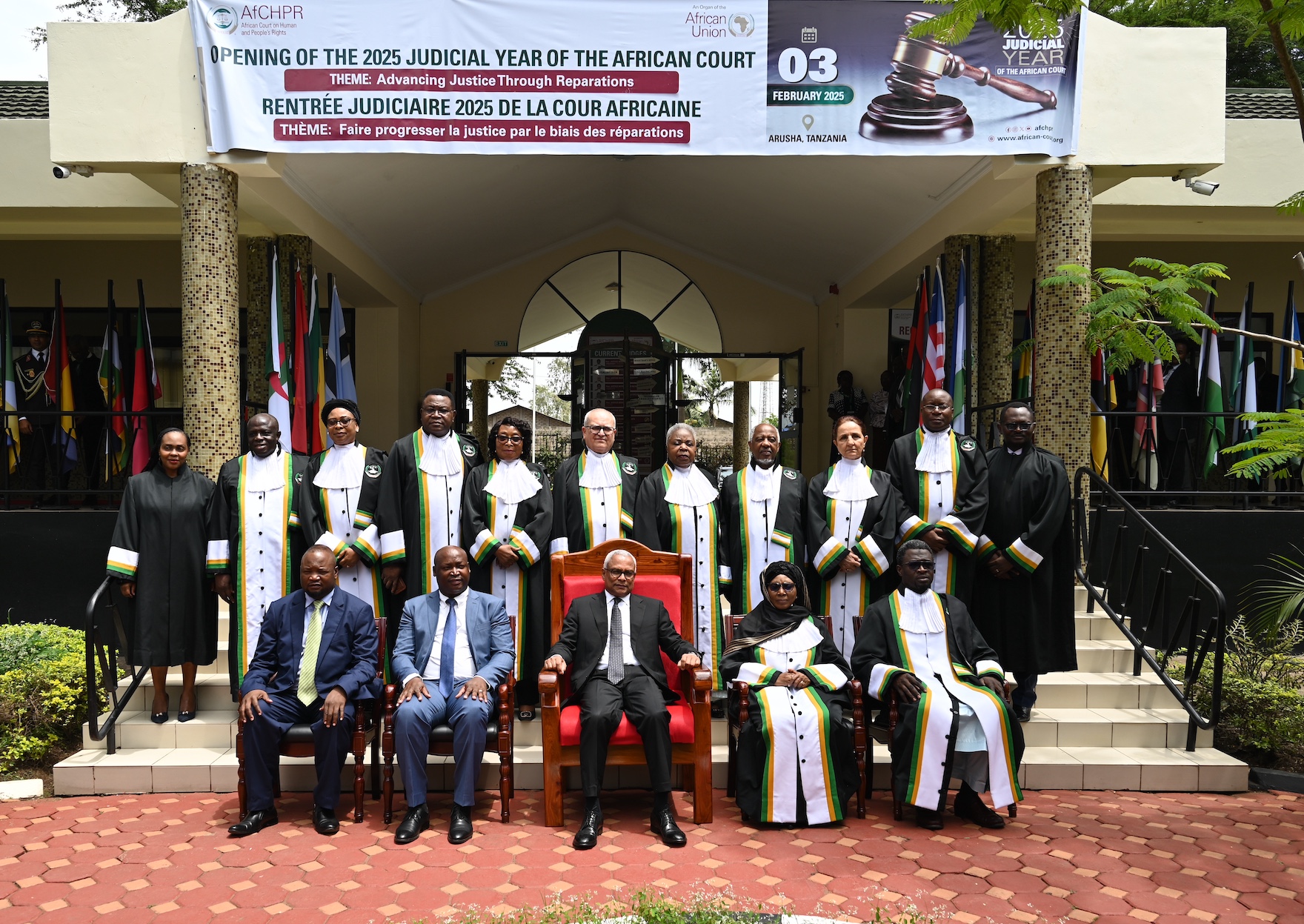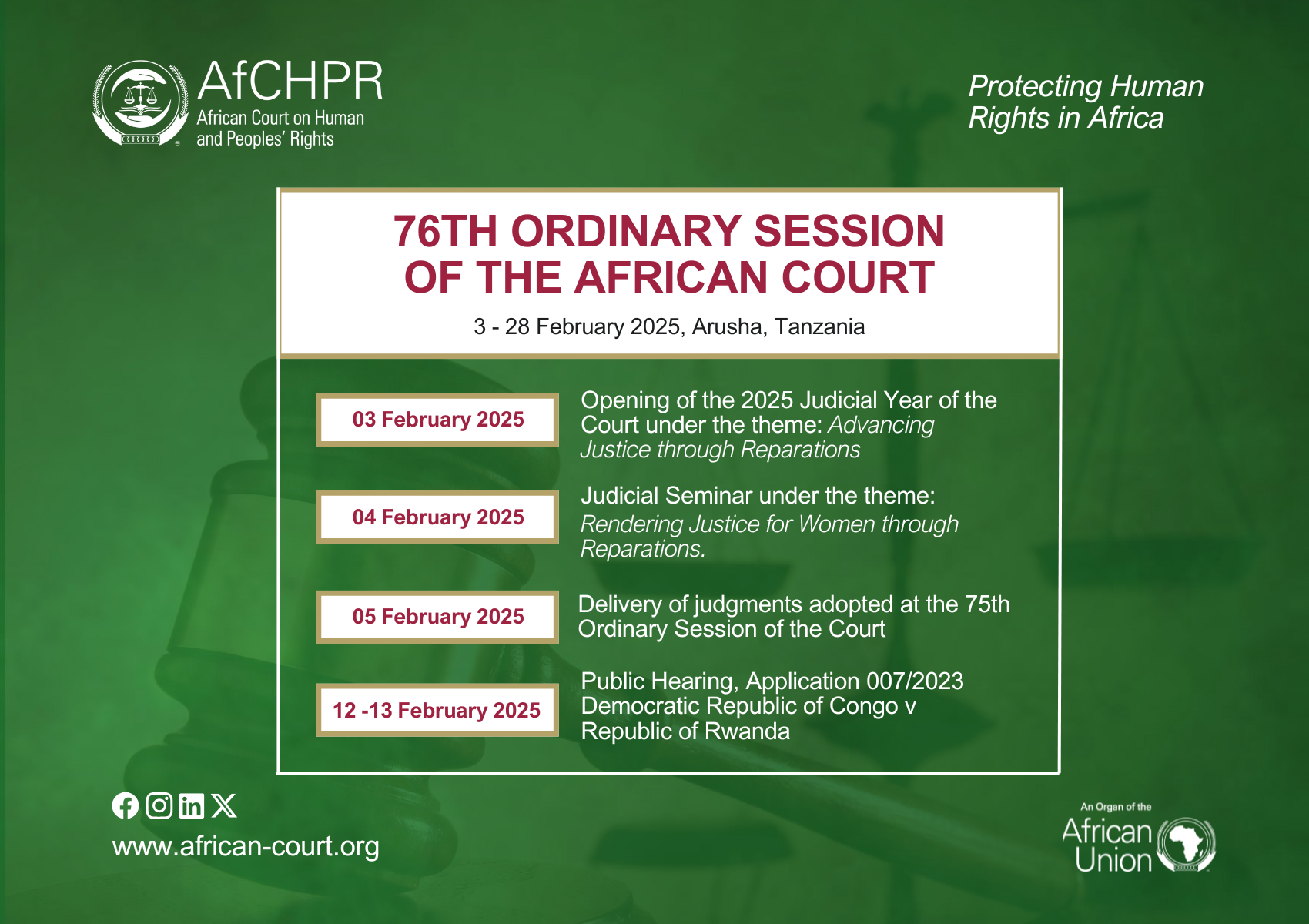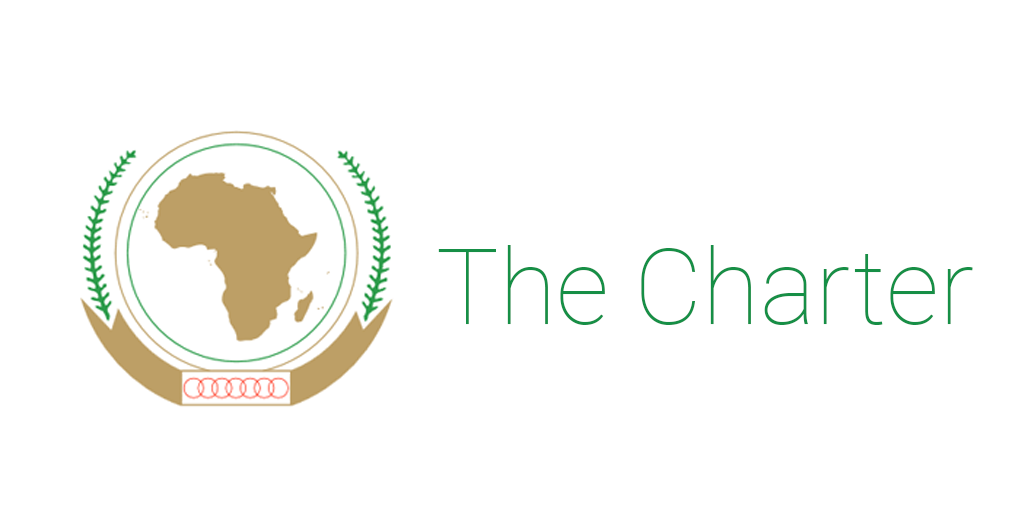Dar es Salam, 6 December 2024: The African Court on Human and Peoples’ Rights (the African Court) has concluded a sensitization visit to the United Republic of Tanzania aimed at strengthening dialogue and enhancing understanding of the Court’s mandate and its role in the protection of human and peoples’ rights across the continent.
The mission was conducted in Dodoma and Dar es Salaam, led by the President of the Court, Hon. Lady Justice Imani Daud Aboud, and her delegation included: the Vice President, Hon. Justice Modibo Sacko, Hon Justice Duncan Gaswaga and Registry staff.
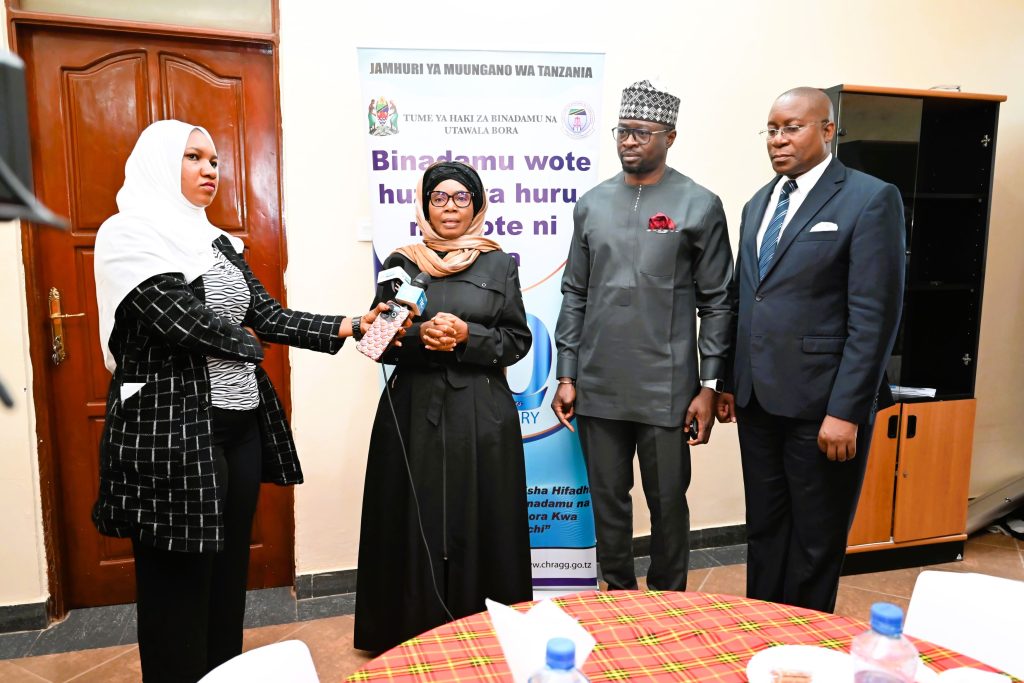
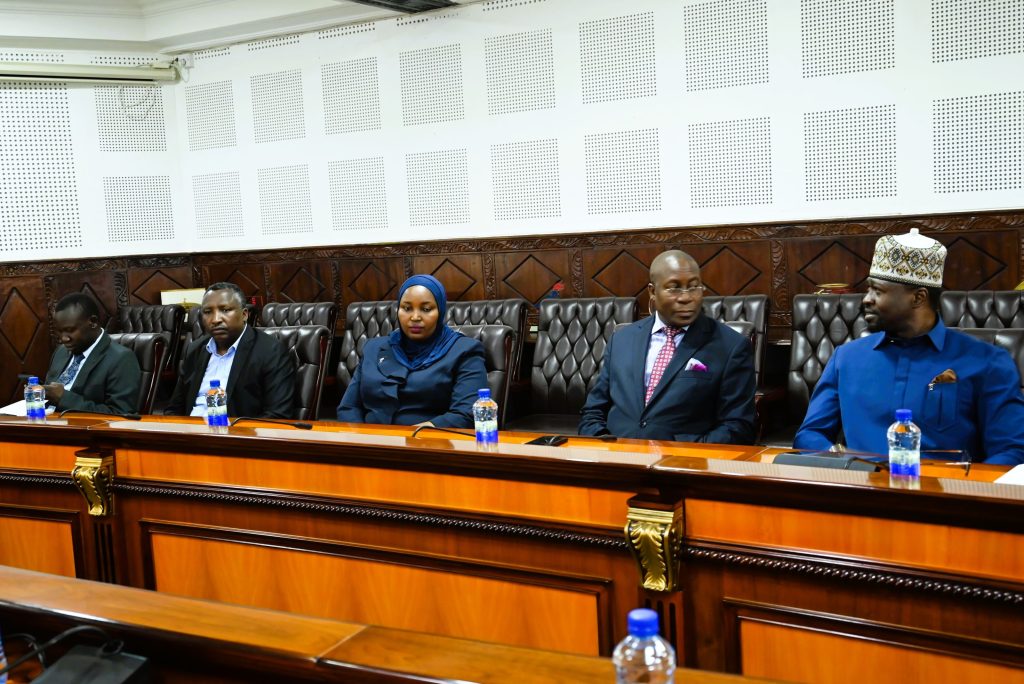
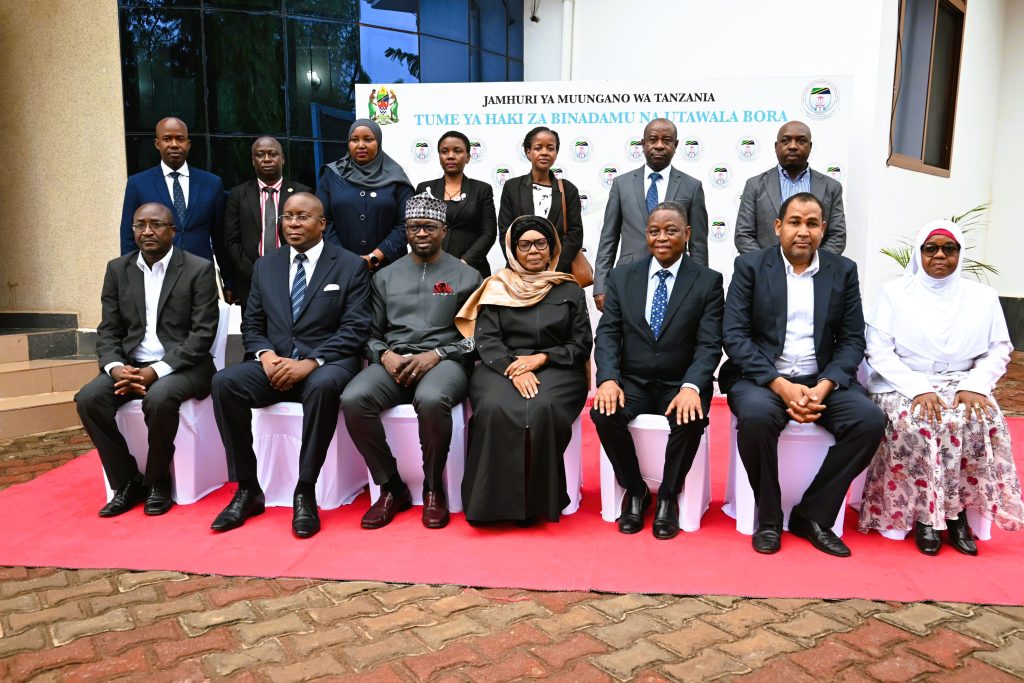
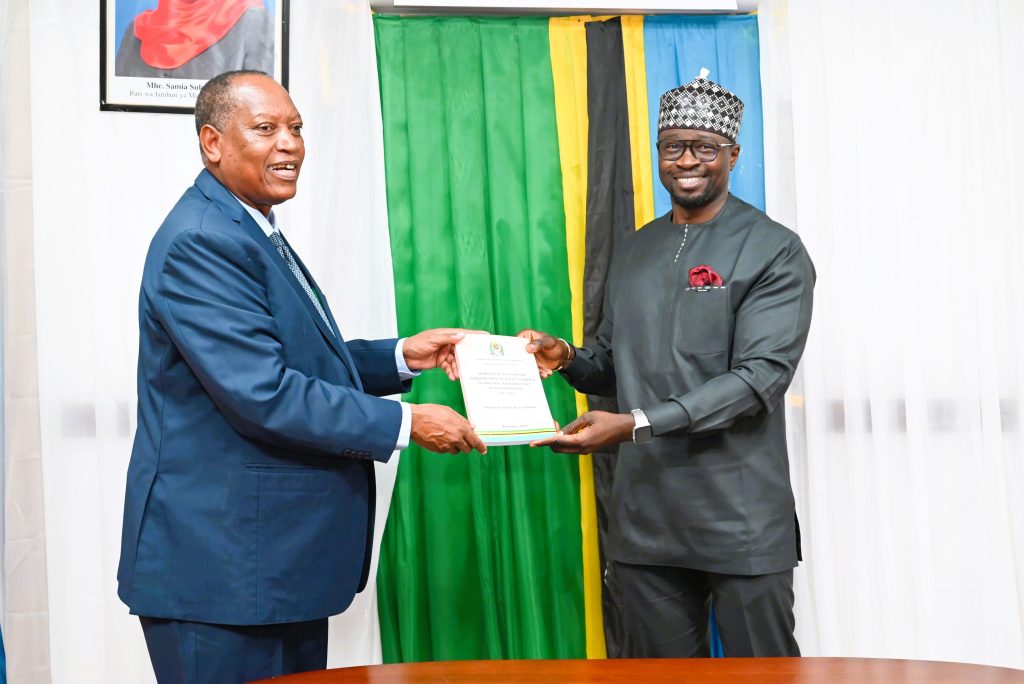
The delegation engaged with key government stakeholders, including the Attorney General Hon. Hamza Johari, the Minister of Justice, Constitutional and Legal Affairs, Prof. Palamagamba Kabudi, Speaker of National Assembly, Dr Tulia Ackson, Hon Dennis Lazaro Londo, Deputy Minister of Foreign Affairs, Chairperson of the Commission for Good Governance and Human Rights, Justice Mathew Mwaimu, and Hon Boniface Anyisile Kajunjumele Mwabukusi, the President of the Tanganyika Law Society and other senior officials.
The two critical agenda issues discussed during the Court’s visit were the Court’s request for the United Republic of Tanzania to redeposit the Declaration under Article 34(6) of the Protocol to the African Charter on Human and Peoples’ Rights on the Establishment of an African Court on Human and Peoples’ Rights (the Protocol), allowing individuals and NGOs direct access to the Court, and the implementation of the Court’s decisions .
On the redeposit of the Declaration, the government authorities underscored the importance of the Court to Tanzania as the host country, and assured the Court that the issue was under review and consultation, and that Her Excellency President Dr. Samia Suluhu Hassani, President of the United Republic of Tanzania, will be advised accordingly.
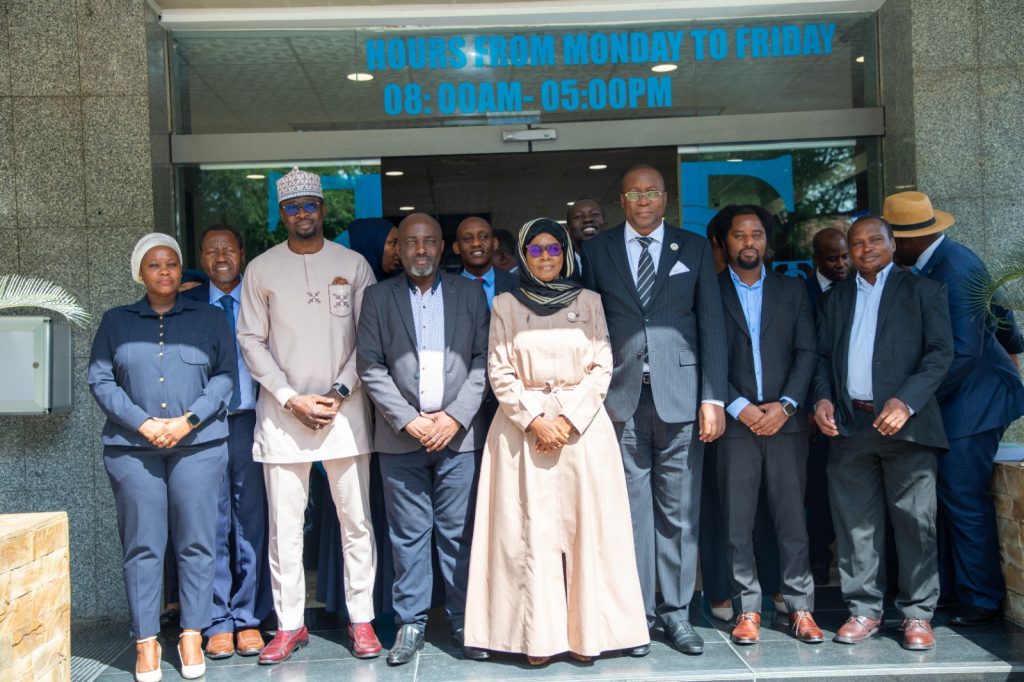
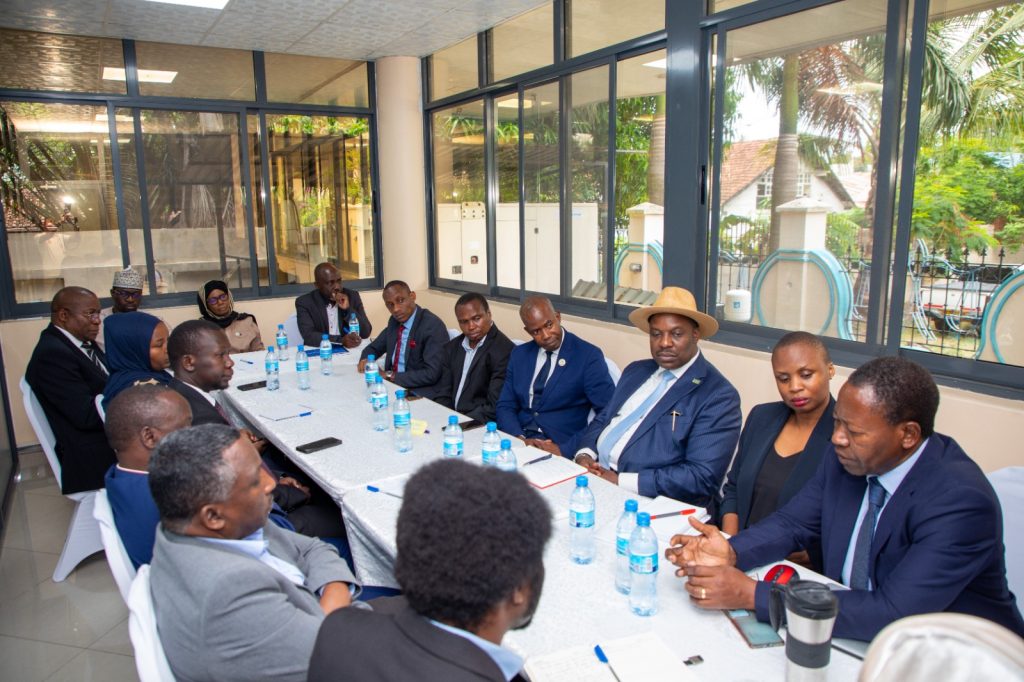
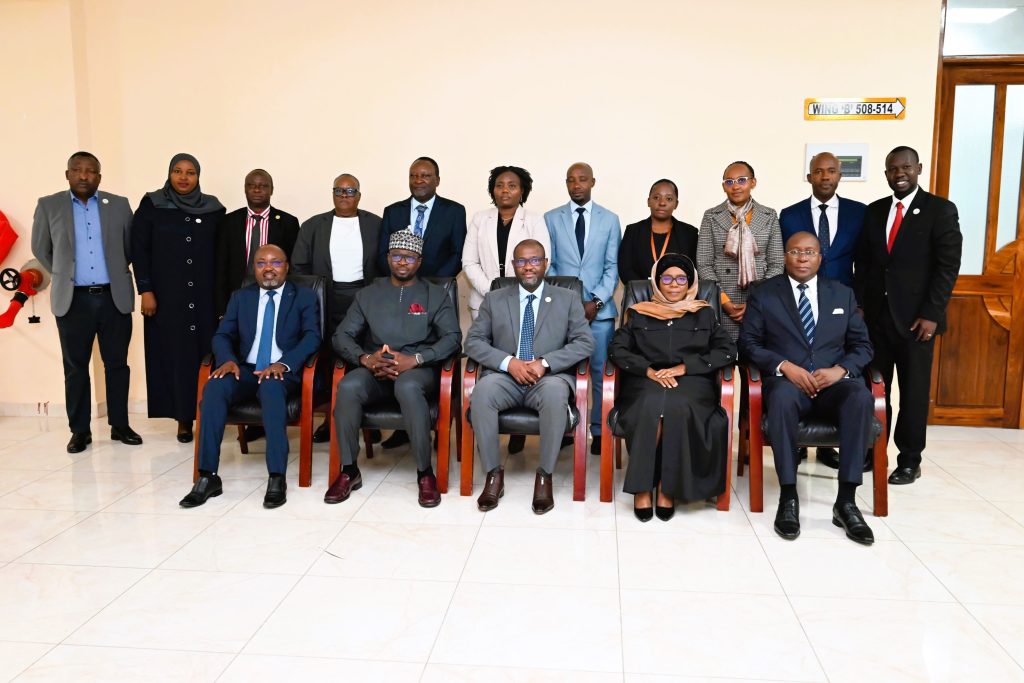

Regarding the implementation of the Court’s decisions, the government acknowledged the Court’s concerns and committed to ensuring their implementation. It highlighted that some of the Court’s decisions have already been implemented and utilized in the ongoing Criminal Justice Reform efforts in Tanzania.
The sensitization visit also facilitated dialogue on the challenges surrounding the implementation of the Host Agreement and explored ways for Tanzania to address these issues effectively.
The government authorities, including the Attorney General, the Speaker and the then Minister of Justice, further underlined Tanzania’s commitment to continue cooperation with the African Court, highlighting the importance of dialogue and consultation in addressing areas of divergence.
Hon Justice Aboud expressed the Court’s appreciation for Tanzania’s openness to dialogue and encouraged the government to expedite the review process, stressing that redepositing the Article 34(6) Declaration is critical in ensuring access to justice for individuals and communities across the nation.
She said the Court also appreciates the government of Tanzania for the ongoing construction of its permanent seat in Arusha – Tanzania, due for completion in 2025, saying the project reflects the commitment of the host country to the effective functioning of the Court.
NOTES FOR EDITORS:
- The African Court on Human and Peoples’ Rights was established by virtue of Article 1 of the Protocol to the African Charter on Human and Peoples’ Rights on the Establishment of an African Court on Human and Peoples’ Rights, to complement the protective mandate of the African Commission on Human and Peoples’ Rights, with a view to enhancing the protection of human rights on the continent.
- Since the adoption of the Protocol in June 1998, thirty-four (34) of the fifty-five (55) Member States of the African Union have ratified it, and only 8 (eight) State Parties to the Protocol have deposited the Declaration under Article 34(6). The eight States are: Burkina Faso, The Gambia, Ghana, Guinea-Bissau, Mali, Malawi, Niger and Tunisia.
- The success of the Court as a human rights protection mechanism requires much wider ratification of the Protocol by Member States, as well as their acceptance of the competence of the Court by making the Declaration under Article 34(6). This “universal” ratification will give the Court the legitimacy it needs to effectively discharge its mandate.
Further information on the Court can be obtained from www.african-court.org
For further inquiries: Dr Robert Eno, Registrar – Robert.Eno@african-court.org
For media inquiries: Chipiliro Kansilanga, Senior Information & Communication Officer and Head – Communication Unit Chipiliro.Kansilanga@african-court.org








